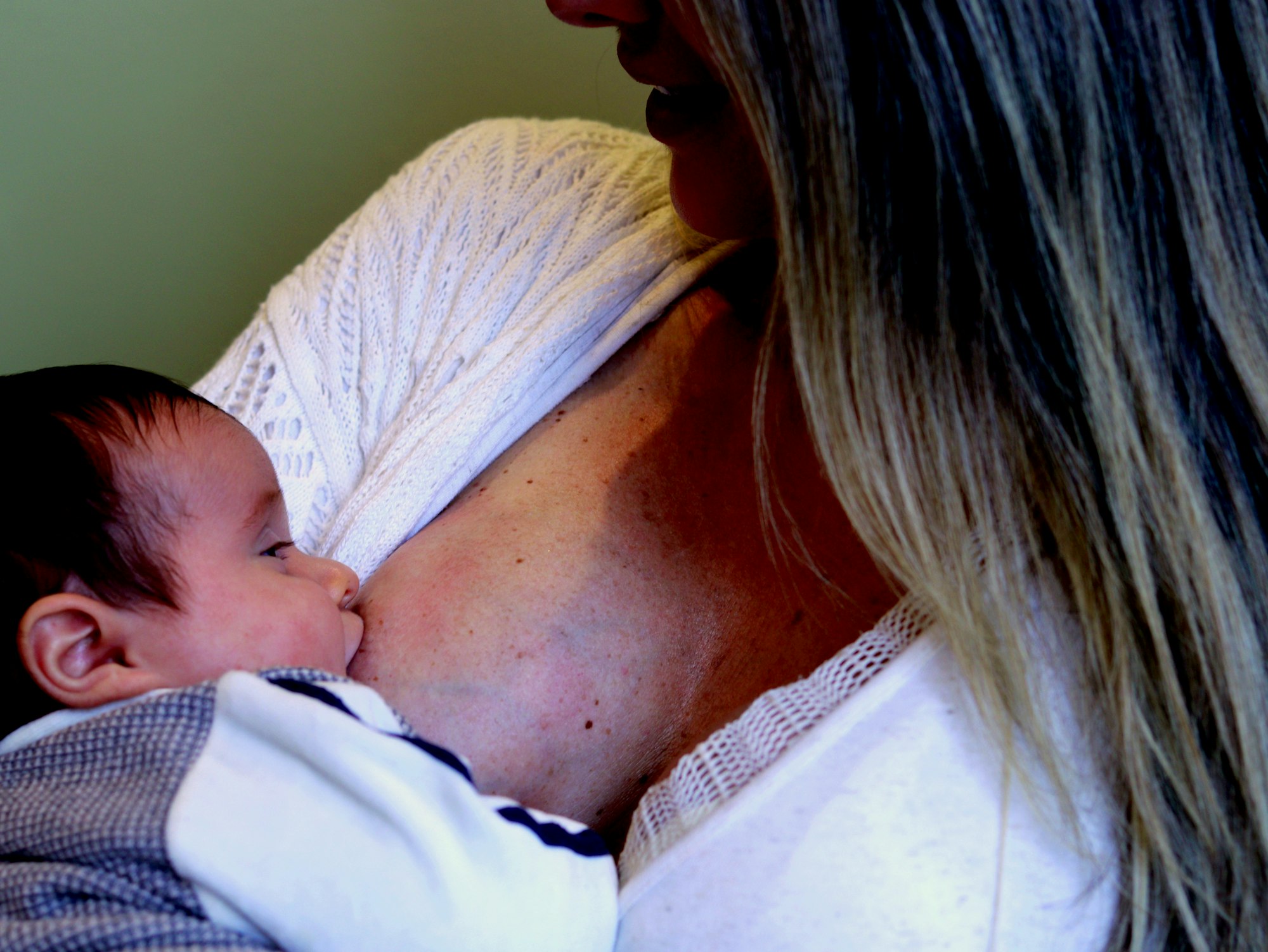Why Is Breastfeeding on Demand (Cue Feeding) So Important?
Cue feeding, also known as “breastfeeding on demand" or “baby-led feeding," is when a mother allows her baby to have the breast on request!

Breastfeeding on Demand
Cue feeding, also known as breastfeeding on demand or baby-led feeding, is when a mother allows her baby to have the breast on request!
When you breastfeed on demand, you do not set a fixed time or feeding schedule for breastfeeding, but you let your baby breastfeed whenever and for as long as they want to.

Why Breastfeed on Demand?
- You can keep your milk supply sufficient because the more your baby suckles at the breast, the more milk you will produce.
- Frequent nursing increases the fat content in your milk. Therefore, your baby will suffer from fewer colic symptoms, vomiting, and diarrhea.
- Cue feeding can help your baby reach a reasonable weight quickly.
- Breastfeeding on demand should put your mind at ease, knowing that your baby is receiving enough milk.
- It alleviates and prevents engorgement.
- Baby-led breastfeeding is recommended by the WHO (world health org.) and LLL (la Leche league).
- Demand feeding promotes further bonding between the mother and her baby.
- Breastfeeding has been found to decrease stress in both mother and child. So, the more you breastfeed, the more calm and relaxed both of you will be.
- Breastfeeding often will help your baby get rid of jaundice more quickly.
- Babies who breastfeed on request have been found to take longer and more frequent naps.
- These babies have also been found to have fewer digestive problems.
How Often Will I Need to Feed My Baby?
It depends on your baby. Some babies want to be fed every hour, and others might only want to breastfeed every two hours.
Breast milk is digested very quickly, and in the beginning, all newborn babies have tiny tummies (as small as a walnut).
Some babies like to feed through the night, while others don’t. As time goes by, your baby becomes more skilled at milk removal, needing more time between each feeding.
Remember, you cannot spoil your child by comforting them.

The Tushbaby Hip Carrier
With its ergonomic design and comfortable waistband, Tushbaby provides optimal support for you and your baby. Say goodbye to shoulder and back pain from traditional carriers, as Tushbaby evenly distributes your baby's weight, relieving strain and promoting better posture.
Coping With Feeding on Demand
- The frequency of feeds becomes less within the first month. In other words, it does get easier.
- Try not to keep to a strict schedule in the first few weeks, but rather sleep when your baby sleeps. This will make it easier to continue with Baby-led feeding.
- Co-sleeping is convenient and will help decrease the time spent during each feeding. Co-sleeping will also prevent your baby from waking completely, ensuring a better night's sleep for both of you.
- Breastfeeding your baby in a sling: Give your baby easy access to your breasts all day.
- Find support: Get breastfeeding advice from a lactation consultant or an experienced friend or relative. Alternatively, opt for a Milkology breastfeeding course and equip yourself with the comprehensive knowledge necessary for a successful breastfeeding experience.
- Stay at home with your baby for as long as you can. Cue feeding is not always possible when returning to work.
- Breastfeed in public if you have to; there are ways of doing it discreetly for those worried about this.
- Dealing with criticism: Some people may not understand why you would need to breastfeed your baby as often as you do. Just give them the facts.
Other Tips and Advice on Cue Feeding
- When your baby cries, offer them the breast; if your baby doesn’t seem interested, you can look for other reasons why they might cry.
- Baby feeding cues might indicate hunger: crying, sucking the hands, smacking lips, and rooting for the breast.
- Let your baby breastfeed for as long as they want on one breast, and then only offer the other.
- Never force your baby to breastfeed.
- During growth spurts, your baby might breastfeed more often than usual.
- If your newborn baby is not breastfeeding at least every two hours, you will need to wake your baby for extra feedings.
- How to know when he is full: Your baby will let you know when they are full by pulling away from your breast or by ending the suck.
- Extreme demand feeding: If your baby is drinking a lot and spitting up a lot, you should find out if they are not suffering from acid reflux.
